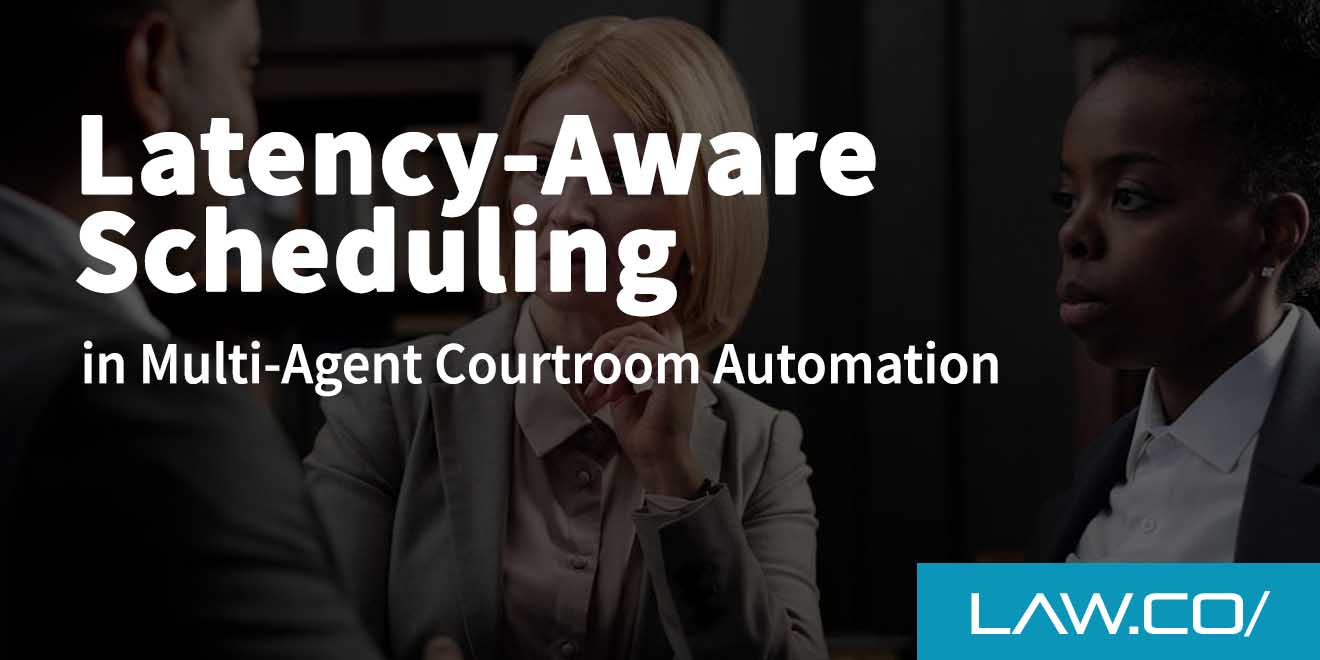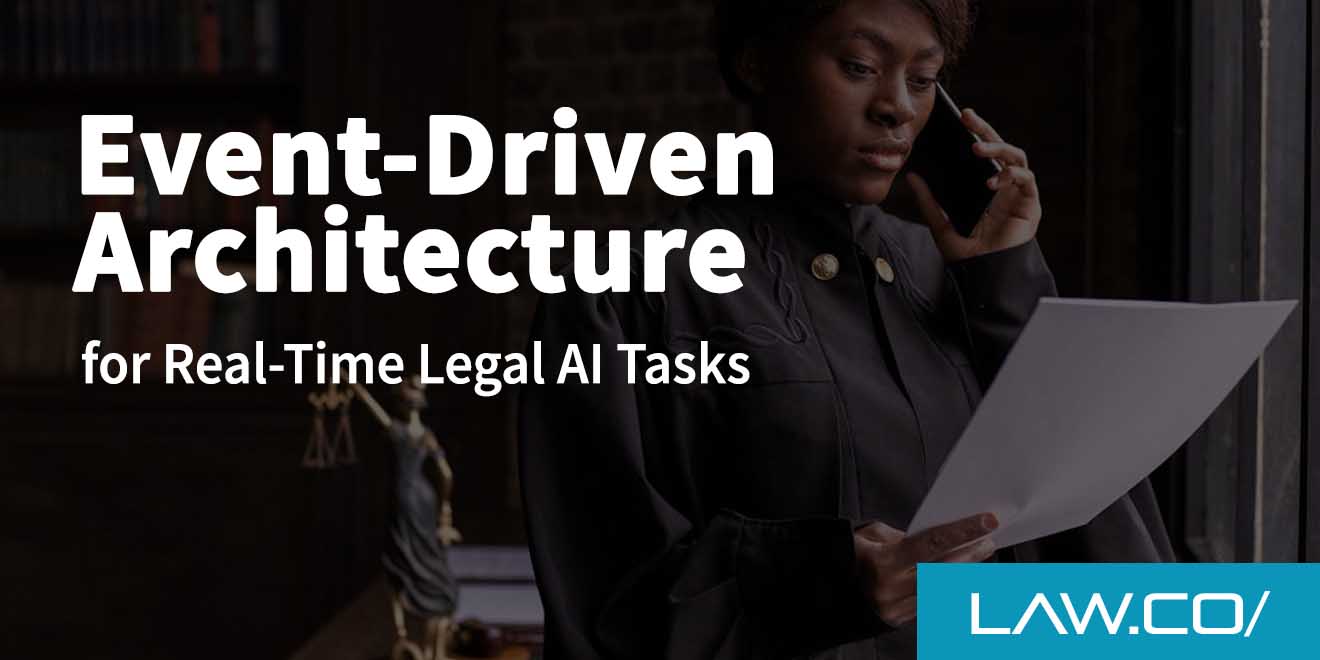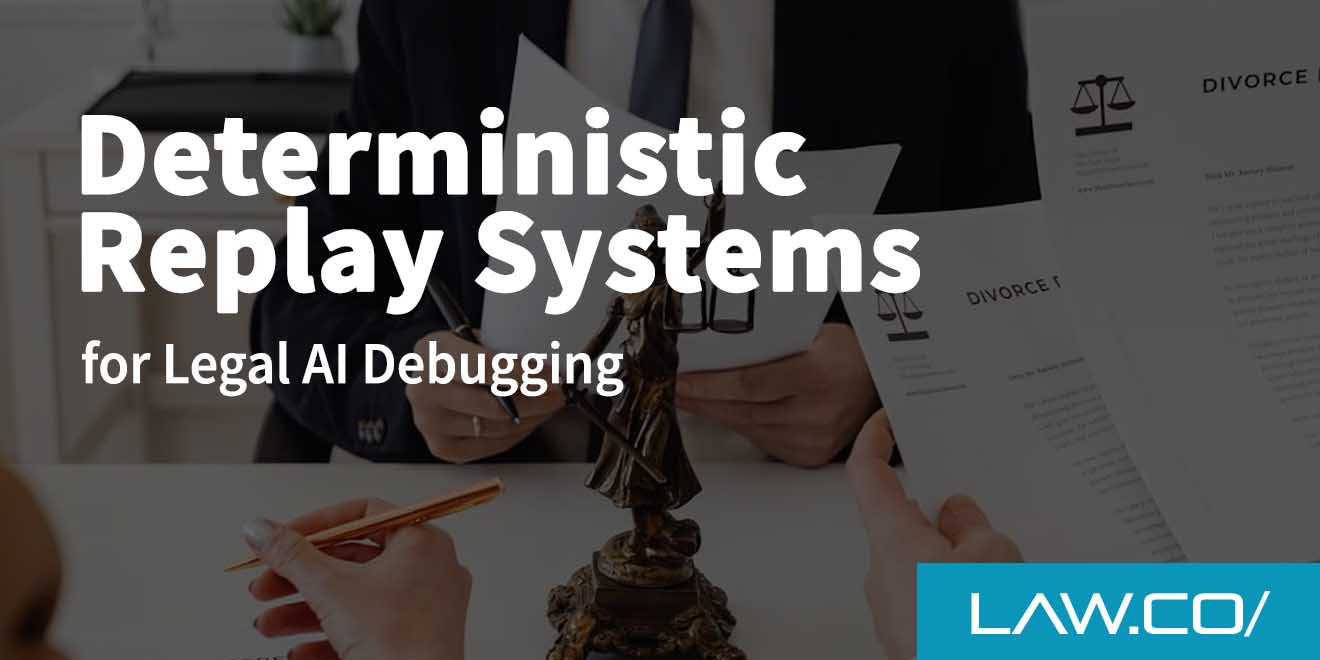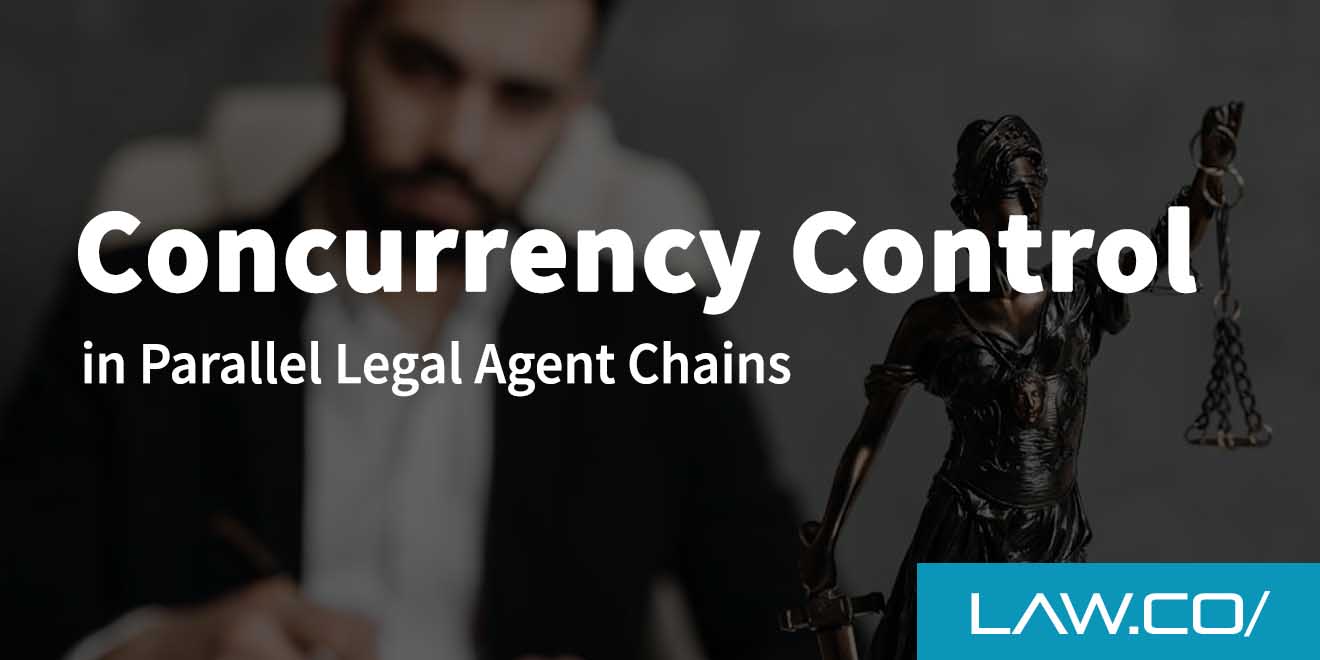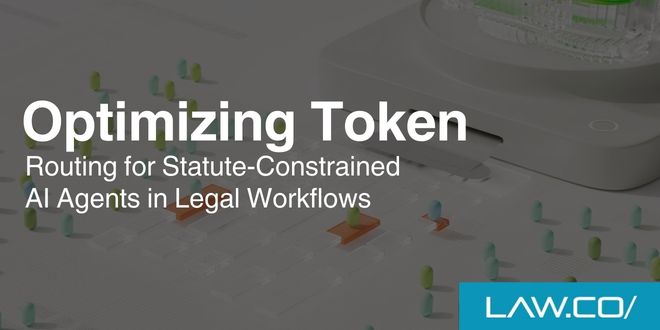

Automation and AI for Estate Planning: 7 Rules for Effective Use
As an estate planning lawyer, you'll have people's lives and fortunes in your hands. Your clients are counting on you to help them plan for the inevitable and manage their estates, and you're likely genuine in your desire to help them.
However, being an estate lawyer isn't easy, especially if you're also managing an entire law firm. You'll probably be juggling dozens, if not hundreds of clients at once, and you'll be responsible for managing your relationships with those clients in addition to all the tedious and challenging work of legal responsibilities.
AI and automation are technologies that can help you.
But if you want to get the most value out of these new, advanced tools, you'll need to learn more about how they work and interact with legal estate planning.
How Automation and AI Can Help Estate Planning Lawyers
These are just some of the ways that automation and AI can help estate planning lawyers:
· Scheduling and task management. Keeping track of action items, meetings, and various other responsibilities can become overwhelming, especially as your law firm grows. Fortunately, even years-old automation and AI technologies can help you streamline this work. From automatically scheduling follow-up tasks to offering streamlined workflows for every type of responsibility, these tools can minimize headaches throughout your profession.
· Document drafting. With generative AI came a total revolution in how lawyers think about document drafting. In the realm of estate planning, lawyers have considerable freedom to rely on established, standard templates, but it's still important to treat each client as unique and make sure those estate planning documents are in proper order. Drafting and editing these documents, including wills, powers of attorney, and trust-related documents takes hours of time out of your schedule by default. But now that more advanced legal AI tools are on the market, it's possible for lawyers to draft these types of documents in a matter of seconds, or sometimes minutes. That doesn't mean the documents produced will be perfect, but it should give you a good place to start.
· Template creation and management. Similarly, generative AI gives you the power to create and manage your own templates. If you make use of a back-end management system attached to your AI and automation tools, you should have a much easier time keeping those templates organized for your future work. Of course, you can also create your own templates by hand and use them in conjunction with AI to streamline the production of finished documents.
· Case law and legal research. Legal research is a central part of the job, but it’s exhausting and time consuming. If and when you need to research previous cases or other legal matters, you'll be glad to have a conversational AI system in place. With conversational search capabilities and an AI that penetrates deep legal archives, you should be able to find whatever you're looking for in record time.
· Document review and editing. Whether you're still drafting documents by hand or you're mostly reviewing work created by generative AI engines, it's often worth using legal AI to review and edit the documents you've created. Legal AI isn't perfect, but it can catch a wide variety of potential mistakes and make recommendations for how to phrase things more precisely or more concisely. Think of it as a diligent coworker who can help support you in doing your best work.
· Database management. Some legal AI tools also offer database management, allowing you to keep comprehensive archives of all your most important documents and information. Obviously, it's important for estate planning lawyers to be able to keep track of all their clients and the documents they've created for them; Legal AI makes this much easier and much more accessible.
· Ongoing learning. You can even use legal AI as an outlet for ongoing learning. With its intuitive search functionality and its ability to present relatively complicated matters in a more digestible format, you can make quick work of all your educational responsibilities.
The bottom line for incorporating AI and automation into your estate planning law practice is that you'll benefit from the following and more:
· Time savings. Most people consider the strongest benefit of AI and automation to be time savings. Instead of taking multiple hours to draft a document, you can draft it in minutes; then, you can spend the extra time you've saved meeting with clients, building those relationships, or working on your practice in other meaningful ways.
· Labor savings. Similarly, while AI can't quite replace an associate attorney or even a paralegal, it can handle many responsibilities that entry-level humans in the legal industry might otherwise take on. In the right context, you can save a lot of money on hiring and labor simply by deploying AI and automation in your firm.
· Consistency of execution. Many lawyers appreciate the consistency of execution offered by legal AI. No, it's not perfect, and there are some issues you'll need to deal with. However, AI tools are extremely reliable in producing solid work for a variety of tasks and responsibilities.
· Error reduction. Good lawyers are extremely attentive to language and little details, making them less likely to commit mistakes when they matter most. However, no attorney is bulletproof. Utilizing AI and automation in combination with your own talents and consistent reviews can help you reduce the possibility of errors even further.
· A more intuitive experience. If you've never used legal AI before, you might be surprised at how intuitive it is. Unlike other search and assistance tools designed for lawyers, most legal AI tools are designed to be conversational and usable out-of-the-box, with little to no training. Even if you're generally reluctant to try and use new technologies, you should know that legal AI is quite accessible.
The Caveats: Why AI and Automation for Estate Planning Aren’t Perfect
Of course, we do need to acknowledge that there are some caveats. AI and automation for estate planning aren't perfect technologies, and you do need to be careful how you use them in your practice.
· Hallucinations and inaccuracies. Generative AI isn't “real” intelligence; people who understand the technology sometimes call it a sophisticated form of mimicry. AI doesn't really learn anything, but it does pick up on patterns and try to reproduce them. In most contexts, this is extraordinarily impressive and reasonably accurate, but there are instances in which AI produces “hallucinations,” or total fabrications, or inaccuracies in its output. In fact, AI hallucinations in legal models occur in at least 1 out of every 6 benchmarking queries, at least according to one study. AI is still incredibly helpful, but this is something that you need to keep in mind.
· Functional limitations. Legal AI is still somewhat new and is associated with some functional limitations. It's not going to be helpful in every legal responsibility or task, nor is it going to take your place as a lawyer.
· Privacy, security, and confidentiality. Some legal AI tools have encountered issues associated with privacy, security, and confidentiality. In estate planning, you're going to be dealing with very sensitive information for clients who likely want to keep that information private and secure. At the very least, you'll be responsible for keeping their information confidential from an ethical standpoint. Accordingly, you'll need to do your due diligence to make sure the tools you're using are reasonably secure.
· Bias. Some critics have pointed out that generative AI engines are plagued by biases inherent in how they were coded and deployed. Since legal AI is trained on a variety of external sources, any bias inherent in those external sources is likely to manifest in the legal AI itself. On top of that, legal AI engines are likely to inherit biases from their creators. Again, this doesn't defeat the purpose of legal AI, but it is something to build into your assumptions.
· Representation and the human element. For now, legal AI can't grow legs and represent someone in court. Legal AI also can't have conversations with clients and can't build relationships with human beings. Remember that the human element is still a very important part of managing a legal practice – and you'll still need to be the one meeting with and representing your clients.
· General ethics. Lawyers are responsible for following a strict ethical code of conduct. That includes working honestly, professionally, and in the best interests of your clients. There are certain use cases of legal AI that violate ethical standards, so be extremely cautious as you incorporate these technological tools into your work.
Rules for Effective Use of Automation and AI in Estate Planning

What are the best practices for estate planning lawyers planning to use AI and automation in their law firms?
1. Remember that you’re the lawyer. Your first responsibility is to remember that you are the lawyer and you are the one in charge. No matter how you intend to use legal AI now or in the future, you're still going to be the ultimate locus of accountability for any of the work you produce. That means that you'll need to work diligently to build and preserve your human relationships. It also means that you need to take responsibility for all the efforts made by your technologies. Don't allow the machine to take over.
2. Choose the right tool. There are many legal AI tools on the market, some of which are strictly better than others. Some of them offer more robust functionality. Some of them are easier to use. Some of them are more accurate and more reliable. And of course, some are more secure than others. If you want to be successful in your legal practice, it's imperative that you choose the right tool. Compare multiple tools before you choose the one that seems to be the best fit for your business.
3. Know the strengths and weaknesses of legal AI. You'll be able to use legal AI much more responsibly if you thoroughly understand all of its strengths and weaknesses. This means that you'll be able to cater to the greatest strengths of your technologies while simultaneously accommodating and limiting their weaknesses.
4. Become a master of prompt engineering. Good prompt engineering habits can help you avoid or at least accommodate most of the weaknesses associated with AI and automation. Prompt engineering is basically a set of strategies designed to help you get better, more relevant output from your legal AI. It's not especially complicated, but it does come with a bit of a learning curve and does require some development. The better you are at prompt engineering, the less likely you are to encounter inaccuracies, mistakes, and irrelevant outputs.
5. Experiment and practice. In line with this, experiment and practice. Ideally, you'll have many hours of experience using legal AI before you rely on it for big responsibilities or particularly intensive tasks. Using AI is like using any other tool; it takes time to gain experience and work out all the kinks.
6. Practice full, transparent disclosure. As a general best practice, it's a good idea for estate lawyers to exercise full, transparent disclosure. If you produce any documentation using AI, notify your clients. Explain to them which AI tools you use and how you use them, so they're properly informed and there are no surprises down the line.
7. Finish with a pair of competent human eyes. Everything you ever generate using legal AI, from case briefs to medical power of attorney drafts, needs to be reviewed by a competent human professional as a last step. Mistakes have devastating consequences in this industry, so you owe it to your clients and to your practice to keep the occurrence of mistakes as close to zero as possible.
Are you curious about how AI and automation could help your practice as an estate lawyer?
You’re in luck. We’ve recently added estate planning functionality to our advanced legal AI tool, allowing you to plan and produce wills, trusts, and countless other items for your clients.
If you’re ready to see a demo, you’ll find one here!

%201.svg)


